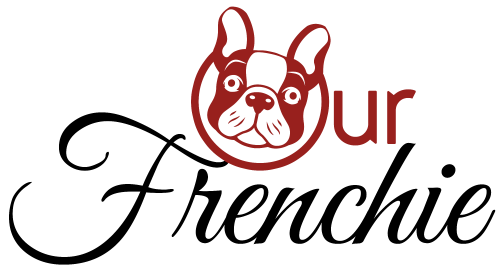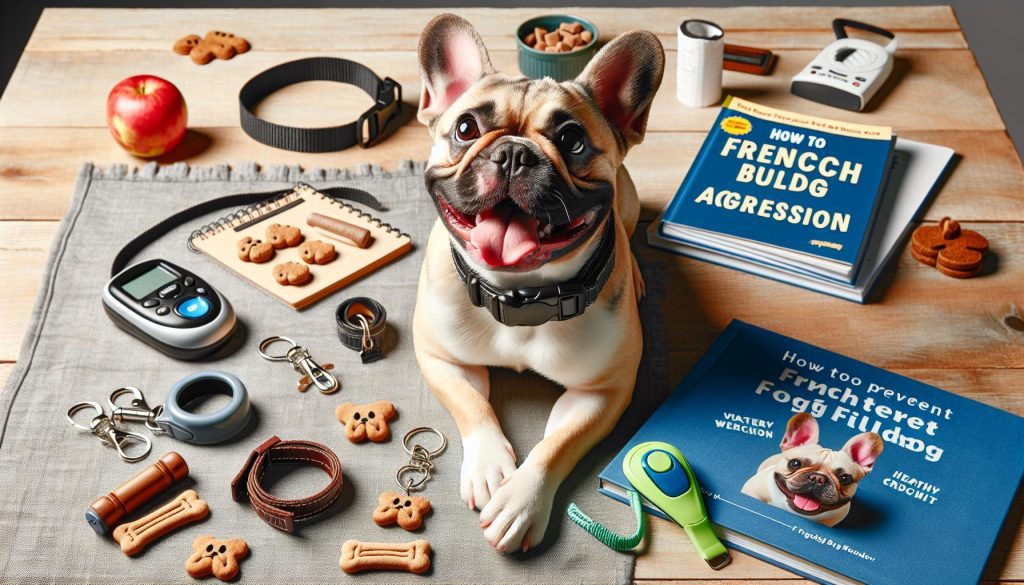About
How to Prevent French Bulldog Aggression
Page Contents
french Bulldogs, with their charming personalities adn distinctive bat-like ears, have captured the hearts of dog lovers worldwide. However, like any breed, they can sometimes exhibit aggressive behaviors if not properly socialized and trained. Understanding the root causes of aggression in French Bulldogs is crucial for ensuring a harmonious relationship between pet and owner. This article will explore effective strategies and practical tips to prevent aggression in French Bulldogs, helping you foster a loving and well-behaved companion. Whether your a new owner or an experienced enthusiast, these insights will guide you in nurturing a gentle and pleasant Frenchie.
Understanding French bulldog Behavior
French Bulldogs are known for their affectionate and playful nature, but like any breed, they have their own unique behavioral traits. Understanding these behaviors is crucial in preventing aggression. French Bulldogs are typically social and enjoy being around people and other pets, but they can develop aggressive tendencies if they feel threatened or anxious.Recognizing the signs of discomfort or stress in your French Bulldog can definitely help you address issues before they escalate into aggression.
**Key Behavioral Traits of French Bulldogs:**
- **Stubbornness:** Despite their small size,French bulldogs can be quite stubborn.This trait may lead to frustration, both for the dog and the owner, if not managed properly.
- **Attention-Seeking:** These dogs thrive on human interaction and can become anxious or agitated if they feel neglected.Ensuring they receive adequate attention and mental stimulation is essential.
- **Protectiveness:** While generally friendly, French Bulldogs can become protective of their owners and territory. It’s vital to socialize them early to minimize this behavior.
French Bulldogs communicate through body language, such as tail wagging, ear positioning, and vocalizations. **Observing these cues** can provide insights into their emotional state. For instance, a wagging tail accompanied by relaxed body posture typically indicates a happy dog, while a stiff body and growling may signal discomfort. By paying attention to these signals and responding appropriately, you can foster a harmonious relationship and reduce the likelihood of aggressive behavior.
Early Socialization Techniques
- Expose to Diverse Environments: From a young age, introduce your French Bulldog to various settings such as parks, busy streets, and quiet neighborhoods. This helps them become comfortable with different stimuli and reduces anxiety-driven aggression.
- meet and Greet: Facilitate positive interactions with other dogs and people. Arrange playdates with well-behaved dogs and invite friends over to meet your pup. Ensure these interactions are positive and calm, rewarding your dog with treats and praise for good behavior.
- Handling Exercises: Regularly handle your French Bulldog by touching their paws, ears, and mouth to get them accustomed to being touched. This can prevent aggression during grooming or veterinary visits. use a gentle approach and reward them with treats to associate handling with positive experiences.
Incorporating these techniques into your French Bulldog’s routine can significantly reduce the likelihood of aggressive behavior as they grow. Remember, the goal is to create a well-rounded and confident dog that feels secure in various situations. Consistency and patience are key, and always ensure that socialization experiences are positive and stress-free for your furry friend.
Recognizing Aggression Triggers
Understanding what sets off aggressive behavior in your French Bulldog is crucial for effective prevention. These triggers can vary widely from one dog to another,making it essential to observe your dog’s unique reactions and environment. Common triggers often include unfamiliar people or animals, sudden loud noises, or even changes in their routine. **Identifying these factors early** helps in managing and mitigating potential aggressive outbursts.
To pinpoint these triggers, pay close attention to your dog’s body language and behavior in different situations. Signs of agitation can include:
- Barking or growling
- Excessive panting
- Raised hackles
- Rigid posture
- Staring or intense focus
**Keeping a journal** of your dog’s behavior can be a valuable tool.Documenting when and where aggression occurs, and what happened just before, can reveal patterns you might not notice otherwise. This data is not only beneficial for you but can also be shared with a professional trainer or veterinarian to develop a tailored approach to managing and reducing aggression.
Effective training methods
Training your French Bulldog effectively is crucial in preventing aggression. Begin by establishing a foundation of **positive reinforcement**. Reward-based training helps in building trust and encourages desired behaviors. Use treats, praise, and toys to reward your dog for calm and non-aggressive behavior. Consistency is key, so ensure that all family members are on the same page with the training techniques and commands.
Incorporate **socialization** into your training regimen. Expose your French Bulldog to a variety of environments, people, and other dogs from an early age. This exposure helps them to become well-adjusted and reduces the likelihood of fear-based aggression. When introducing your dog to new situations, remain calm and confident to set a positive tone. If your dog shows signs of anxiety or aggression, calmly remove them from the situation and try again later.
- Practise basic commands like sitting, staying, and coming to instill discipline.
- Engage in regular **obedience classes** to reinforce training and socialize with other dogs.
- Use **desensitization techniques** for triggers that may cause aggression,gradually exposing your dog to them in a controlled manner.
Remember, patience and persistence are essential. It may take time for your French Bulldog to learn and adapt, but with consistent and positive training methods, you can help prevent aggression and foster a loving companion.
Importance of Consistent routine
Establishing a consistent routine is crucial in preventing aggression in French Bulldogs. These intelligent and sensitive dogs thrive on predictability and stability. When they know what to expect from their daily activities, it reduces anxiety and stress, which are often underlying causes of aggressive behavior. Consistency in feeding times, walks, play sessions, and training can definitely help your French Bulldog feel secure and content.
**benefits of a consistent routine:**
- Reduces Anxiety: Regular schedules provide a sense of security, minimizing anxiety-related aggression.
- promotes Good Behavior: Predictable routines reinforce positive behaviors and discourage unwanted actions.
- Strengthens Bond: Consistent interactions help build trust and strengthen the bond between you and your French Bulldog.
To implement a consistent routine, start by setting specific times for meals, walks, and training sessions. Stick to these times as closely as possible, even on weekends or holidays. Additionally, incorporate regular socialization and mental stimulation activities to keep your dog engaged and well-adjusted. By maintaining a steady routine, you create a harmonious environment that fosters a calm and well-behaved French Bulldog.
Managing Health and Diet Needs
Ensuring your French Bulldog’s health and diet needs are met is crucial in preventing aggression. A well-balanced diet can significantly impact their mood and behavior. **Opt for high-quality dog food** that includes a good mix of proteins, fats, and carbohydrates. French Bulldogs are prone to allergies and digestive issues, so it’s essential to choose a food that is free from common allergens such as corn, soy, and wheat.
**Monitor portion sizes** to prevent obesity, a common issue in this breed that can lead to discomfort and irritability. Overweight dogs may experience joint pain and reduced mobility, which can exacerbate aggressive tendencies. Consult with your vet to determine the appropriate calorie intake and adjust as needed based on your dog’s age, activity level, and health status.
- **Regular veterinary check-ups**: Schedule routine visits to detect and address any health issues early.
- **hydration**: always provide fresh water to keep your dog well-hydrated, as dehydration can affect their mood.
- **Supplements**: Consider supplements like omega-3 fatty acids to support joint health and reduce inflammation.
By focusing on these health and diet strategies, you can help maintain your French Bulldog’s well-being and minimize aggressive behavior.
Seeking Professional Guidance
When dealing with aggression in French Bulldogs, reaching out to a professional can be an invaluable step. A certified dog behaviorist or trainer can provide tailored strategies and insights that are specific to your dog’s unique personality and history. **Professional guidance** ensures that you are not only addressing the symptoms but also understanding the underlying causes of aggression, whether they are rooted in fear, anxiety, or territorial instincts.
consider consulting with a **veterinarian** first to rule out any medical issues that might be contributing to aggressive behavior. Health problems such as pain or hormonal imbalances can often manifest as aggression, and a vet can help identify and treat these issues. Once health concerns are addressed, a behaviorist can work with you to develop a customized behavior modification plan.
- **Behavioral assessments**: Professionals can conduct thorough evaluations to identify triggers and stressors.
- **Training programs**: They can guide you through specific training techniques such as positive reinforcement to encourage desirable behavior.
- **Follow-up sessions**: Regular check-ins help to monitor progress and make necessary adjustments to the training plan.
Engaging with a professional not only helps to curb aggression but also enhances the overall well-being of your French Bulldog, ensuring a harmonious and balanced relationship between you and your pet.
To Wrap It Up
preventing aggression in French Bulldogs requires a blend of early socialization, consistent training, and understanding their unique needs. By providing a stable environment, regular exercise, and positive reinforcement, you can nurture a well-adjusted, friendly companion. Remember, patience and persistence are key to addressing behavioral issues. If challenges persist, consulting with a professional trainer or veterinarian can offer tailored solutions. With the right approach, you can ensure your french Bulldog remains a loving and loyal member of your family.

